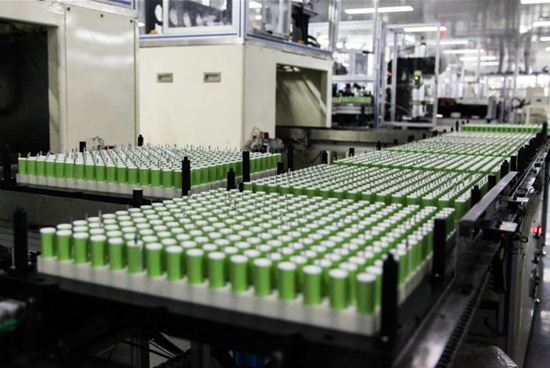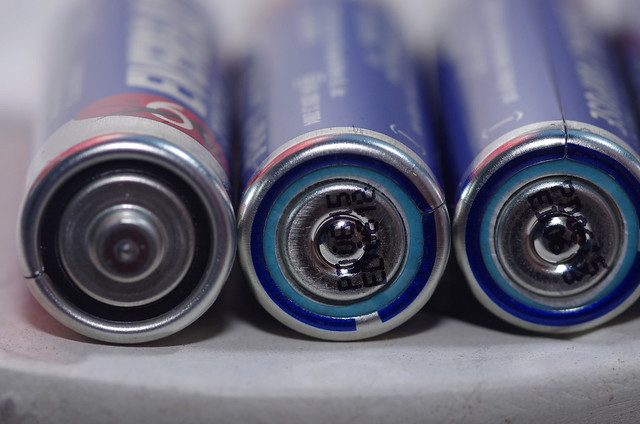Lithium Deep Cell Battery
Oct 10, 2019 Pageview:2041
Deep cell batteries are designed to be regularly discharged using most of its capacity.
Lithium deep cell batteries are the newer form of deep cell battery technology away from the traditional lead-acid type deep cell batteries. They are quite different to conventional deep cycle batteries and sparked a revolution in energy storage. Lithium deep cell cycle batteries are more efficient to other deep cell batteries.
Lithium deep cell batteries have a high density to other deep cell batteries like the lead-acid deep cell batteries.
Lithium deep cell batteries have a relatively low self -discharge and have low maintenance cost. These are some of the merit of lithium deep cell batteries to other kinds of deep cell batteries. Making lithium deep cell batteries score high in efficiency.
Cycle Life
The cycle life is simply how many complete charges and discharges a rechargeable battery can be used before it no longer holds a charge. Discharging a battery by 50% and charging it up to a 100% would only be counted as half life cycle. All rechargeable battery has a fixed number of cycles. Therefore life span would refer to how long it will run on a single charge. As with shelf life, the quality of the battery affects the cycle life.
The estimated life of a lithium deep cell is two three years or 200 to 300 charge cycles. A charge circle is the period of use from fully discharged to fully charge again.
Charge Current
For lithium deep cell batteries, they are fully charged when the current drops to a set level. Some chargers apply a topping charge when the voltage drops. The often recommended charge rate (charge current I=Q/t) of an energy cell is between 0.5c and 1c. The complete charge time is about 2-3h0urs
How Long A Deep Cell Battery Does Lasts
Usually, the life span you can expect to get out of battery if referred to in terms of “cycles”. The discharge state of a battery is often measured in depth of discharge (DOD). This refers to how far down the battery has been taken, for instance, a battery that has 30% of its capacity remaining, would be said to be at 70% DOD. The lifetime or how long a battery last is directly related to the depth of the discharge it regularly experiences. And the length of which a deep cell battery lasts is in proportion with the consumption rates of the circuit it is used. Most of the lithium deep cell batteries have a cycle life of (80%DOD). Things such as starting validity and deep cycle battery life expectancy are points of curiosity. Lifespan is of the most primary specifications of battery a user should know, perhaps next only to type and purpose in significance.
It needs to be considered because it is the period the battery will be useful to the user and one who uses the battery, could plan their purchase, maintenance if needed and replacement schedules around that date when the battery fails, lifespan is also one indicator that that the battery needs to be replaced.
When people talk about how a deep cell battery may last, they talk about it in term of years it will serve them. This is reasonable, given that the number of years can be a good indicator of how long a battery will last. These parameters are never accurate, and there are variables such as weather, purpose and climate that will make predicting the years of service very unreliable. This is the main reason why lifespan of a battery is in cycles.
A battery manufacturer may promote his battery product to serve for 20years, while checking the fine print; you may see that this measurement is only if the battery is cycled only up to 50% discharge cycle. Depth and battery life correlated, so the promoted 20years battery will have a considerable shorter lifespan when cycled to a depth lower than 50%. Where the battery discharges at a constant rate of current over a number of hours, this is referred to as the “C” rating. For example many small batteries rate at the C20 rate. This means that they will deliver their amp hour capacity if discharging over 20 hours. The types of batteries in large stands alone power systems rate at C100 which means that they are designed to discharge over 100hours or 4days. This will give you a lifespan typically of about 15years.
Are lithium battery Deep Cycles
Lithium battery deep cycles are the new form of energy storage from the traditional deep cycle Batteries like the lead-acid deep cycle. They have come with better advantages, efficiency and more flexibility to the former existing forms of deep cell batteries. They are revolutionary.
How Many AMPS Can A Deep Cell Deliver
Though all batteries are not a hundred percent efficient, they are predict table and stable enough for reliable and long term service. Deep cycle batteries are classified and rated in amp-hours. Amp-hours are the term used to describe a standardized rate of discharge current relative to time. It is gotten by multiplication of its current (I) amps and time (HOURS).
The most accepted, rated by manufacturers is 20hours. Meaning the battery will provide the rated amperage for about 20hours until it drops to an average voltage or completely exhausted in volt. Some manufacturers will use higher hours of the standard to make them look better to their consumers. But it is useful in the long term back up analysis.
Before now, there are two ways batteries were rated generally; Amps and Volts. Amps hour (Ah) is the rating capacity present in chemical energy embedded in the batteries that is converted into electrical energy. It is also in consonance to the amount of energy a battery can store or conversely it can be referred to as the discharge rate, which measures the time it takes to dis charge a battery the capacity of the battery discharges in a shorter period , for instance over an hour. The amp hour capacity by about 50% and so will the amount of cycles.
- Prev Article: Lithium Batteries United Airlines
- Next Article: Lithium In Batteries Same As Drug
Leave Message
Hottest Categories
-
Hottest Industry News
-
Latest Industry News











